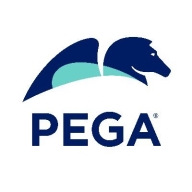

Pega Platform and OpenText AppWorks operate in the low-code development and business process management category. Pega Platform appears to have an edge in wide-ranging enterprise features, while OpenText AppWorks excels in process efficiency and system unification.
Features: Pega Platform offers low-code capabilities, strong case management, and robust integration support, making it suitable for complex enterprise needs. OpenText AppWorks features efficient process optimization, system unification, and low-code development, enhancing integration and optimization for streamlined business processes.
Room for Improvement: Pega Platform needs improvements in user experience and pricing models, with user feedback highlighting complex integrations and version upgrades. OpenText AppWorks requires enhancements in mobile compatibility, user interface, and archival features, with users noting integration capability improvements.
Ease of Deployment and Customer Service: Pega Platform supports deployment in multiple environments, including on-premises and cloud options, with mixed customer support feedback. OpenText AppWorks provides hybrid deployment options with generally positive support ratings, highlighting efficient problem resolutions.
Pricing and ROI: Pega Platform is positioned as a premium product with high pricing but justified by strong ROI and enterprise functionality, offering flexible pricing models. OpenText AppWorks provides moderate pricing with diverse licensing options, appealing to cost-sensitive markets seeking efficiency without high costs.


OpenText Appworks. AppWorks is OpenText's Enterprise Application Development and Management platform. It allows you to quickly and easily build purpose-specific apps for the enterprise using the web technologies such as HTML5, CSS3 and JavaScript. These apps can connect to the OpenText EIM Suite using RESTful API.
Pega Platform facilitates business process management, case management, and workflow automation for industries like banking, insurance, and healthcare. It supports digital transformation and customer service enhancements with its low-code capabilities and seamless integrations.
Pega Platform enables users to create efficient systems for case management, financial operations, and digital transformations. It provides tools for client onboarding, quoting, claims processing, customer experience improvements, and content management. Pega's low-code approach allows for the automation of complex processes, making it suitable for enterprises looking for adaptability and rapid deployment. While it offers strong real-time analytics and decision automation, users acknowledge challenges in user interface, integration, and performance aspects. High costs and a learning curve need attention, and enhancements in AI features and cloud services are desired.
What are the key features of Pega Platform?In banking, Pega Platform automates loan processing, accelerates customer onboarding, and manages compliance. Insurance companies benefit from streamlined claims processing and policy management. Healthcare sectors use the platform for patient engagement and care coordination, enabling organizations to adapt quickly to changing industry requirements.
We monitor all Business Process Management (BPM) reviews to prevent fraudulent reviews and keep review quality high. We do not post reviews by company employees or direct competitors. We validate each review for authenticity via cross-reference with LinkedIn, and personal follow-up with the reviewer when necessary.